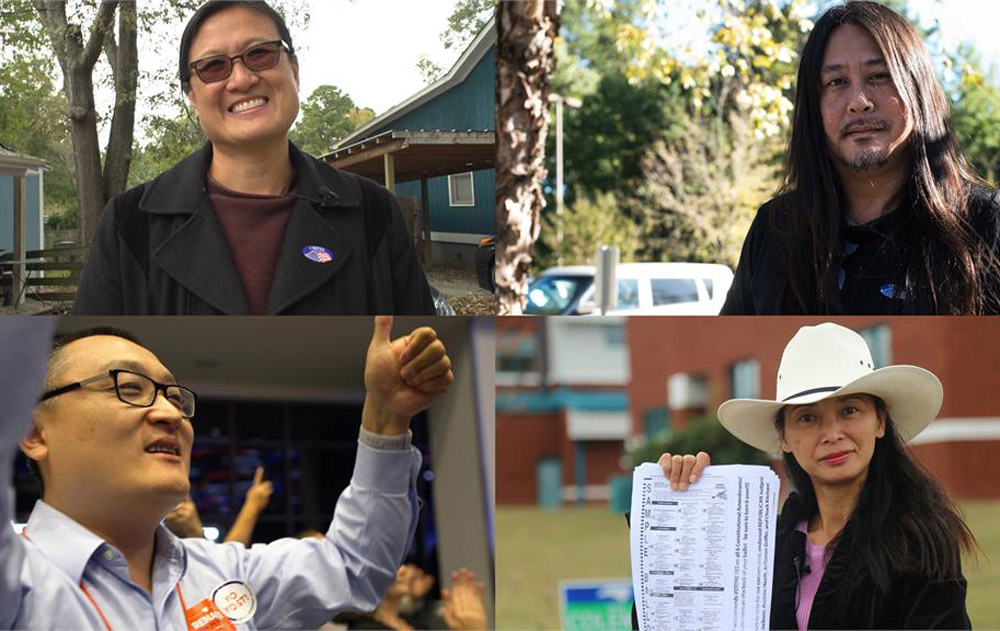At one point in “First Vote,” Jennifer Ho, a professor at the University of North Carolina at Chapel Hill can be heard describing the Unsung Founders memorial, which she’s always found strange – a scene constructed of granite and meant to honor the slaves that were enlisted to build the campus as a way of acknowledging their contribution, but only causing confusion with its design that presents an empty table held up by 300 slaves, literally giving them no seat there even now. It seems like a slight tangent for director Yi Chen to include in a film about Asian-Americans’ place at the polls in modern times, but it comes into focus when some time passes and you see Silent Sam, the confederate monument that sits across from the Unsung Founders memorial, get toppled by protesters who take down the easier target first. “First Vote” is rewarding because Chen opts to go after something far more complex and ambiguous than one would expect from the provocative hour-long documentary centered around the 2018 midterm elections, largely unconcerned with the end result, but fascinated with how a quartet of Asian-Americans plan to participate in the democratic process.
No matter where you sit on the political spectrum, it’s likely you’ll have uncomplicated feelings about the film’s opening images taken from a Trump rally in Florida where a handful of supporters wear garish “Chinese-Americans for Trump” T-shirts to go with their “Make America Great Again” hats. However, the filmmaker upends at least some preconceptions in spending time with Lance Chen, an associate professor at the University of Dayton in Ohio, who has become an ardent Trump supporter, starting his own podcast to “balance the lies of the mainstream media,” and Sue Googe, a shrewd realtor who has parlayed a successful business in North Carolina into a Republican bid for the state’s 4th Congressional District House seat. Although the director brings in political counterpoints via Professor Ho and Kaiser Ko, a journalist who is surprised with how some Chinese-Americans have embraced conservatism in the 20 years he spent back in Beijing, Chen and Googe do not need comparison to make their viewpoints intriguing when it’s clear how Republican rhetoric that has painted the Democratic Party as advocates of socialism has touched a nerve amongst those who experienced communism and their beliefs come across as entirely justified for them personally.
Still, as clearly as everyone on hand is able to articulate the reasoning behind their individual politics, Chen captures how murky the current political climate is generally for Asian-Americans with considerable sophistication, checking in on Googe’s speeches where she’s applauded by white conservatives who you suspect appreciate her primarily as a way to deflect criticism that their party isn’t diverse and shifting the camera from Ko to his wife Fan Zhang, who can’t find friends in North Carolina because of her husband’s politics. Their family alone, where their older daughter prefers Chinese food while their younger son likes burgers and fries, is a sly indication of the ultimate point of “First Vote” where Asian-Americans can’t be seen as some monolithic voting bloc and as Chen illustrates vividly, a shared heritage can yield wildly different attitudes towards politics based on other personal predilections, an observation that is bound to become more prescient in the years to come not just specifically as it relates to Asian-Americans, but as the fastest growing minority group, the country as a whole.
“First Vote” premieres on October 20th on your local PBS station and is available online here.




